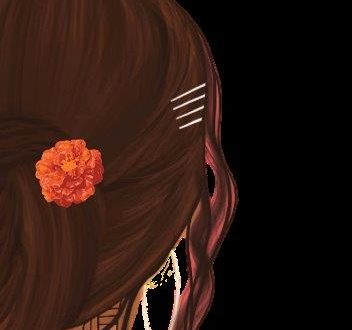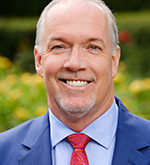By Surbhi Gogia
If someone asked Meera Estrada at the age of 15 to describe herself, it would be simply put in one line – that she was a South Asian Canadian teenager aspiring to be a journalist in the land of opportunities. Never did she realize that one single word about her family had the power to shatter what she had gained in 15 years of her life.
The encounter with that one word was a watershed moment in her life which created many layers of complexities in her personality. When her parents told her she was a “Dalit”. That one single word has made her contribute a whole new chapter about her identity in the book Untold: Defining Moments of the Uprooted.
The book is a collection of real stories that explores the South Asian experience in the U.S., U.K., and Canada through the lens of identity, being, and relationships. Thirty emerging voices share deeply personal moments of immigration, infertility, divorce, mental health, suicide, racism, colorism, LGBTQIA+ issues, and more all while balancing the push and pull of belonging to two cultural hemispheres.
Meera’s story is titled ‘Born Untouchable’. It is the true story of her family and her life that describes how being born as an untouchable has played a role in shaping her identity.
As Meera described it, the Indian society in ancient times was divided into 4 groups known as castes according to the work profiles of people. Those who were at the top of the groups were Brahmins who were priests, then came Kshatriyas who were the warriors, Vaishyas the businessmen, and last in the line were Shudras who did the labor jobs.
The untouchables or the Dalits were not even part of the caste system and they were the people who did jobs that no one ever wanted to do like cleaning toilets, clearing dead bodies etc. A person’s worth and place in society was decided by the caste he/she was born in. It was hard to break out of this system.

Meera’s grandparents and parents were born into this system in the state of Gujarat. “For my grandparents and parents specifically being untouchable meant not being able to go into school buildings. My grandfather had to sit outside the school building if he wanted to learn. They were not permitted in the homes of upper caste people, in temples or public buildings. In my father’s era of segregation he could go to school, but had to sit at the back of the. He could not drink from the school well because he was deemed filthy, his shadow was even deemed filthy and he had to kneel to the ground if an upper caste person walked by. Basically, animals were treated with more dignity than Dalits or untouchables like my family,” she said.
Meera’s father knew it was hard to attain liberation from the caste system in his own country.
He got higher education and went to London and then arrived in Canada to give his family a better life. Although Meera’s parents left their identity behind, those born in ‘higher castes’ brought it with them to North America.
Meera’s parents knew what it meant when people talked about castes but they never passed the burden of their past to their kids. But when they grew up, her parents decided it was time to tell them about their caste.
One evening Meera and her brother sat for a family meeting with their father who told them about their family history. “That was the first time they told us that we belonged to the ‘untouchables’ caste of India. Me and my brother had no clue what that meant. We had never ever talked about anything to do with castes. They didn’t get into the details at that time, but they did tell us because of what we were born as, things were going to be harder,” Meera said.
Meera who thought she was living a perfect life of equal opportunities started realizing the presence of the caste system around her. “Since that time I started becoming hypersensitive to the caste system and how much I heard about it even in North America.”
Meera explained that this social inequality of the Indian caste system exists in the South Asian communities of North America in different forms. While she did not experience the violence, humiliation, and segregation that her father and grandfather faced in India she experienced caste discrimination of another kind.
The South Asian community carries the assumption of being born in a particular caste. “My ‘worth’ has always been put into question, with remarks from elderlies and peers alike (that are born and raised in North America) questioning fellow South Asians being from a “good family”, a “good fit” with “good values” and questioning the intelligence of lower caste people like myself.”
Meera added that she was never open about her caste until very recently. “These comments were not meant to insult me, as the assumption was that I was also of an upper caste, but it has damaged my psyche and caused deep trauma, which I am coming to terms with. It took me an exceptionally long time to reconcile that I perhaps chose a partner outside of my culture because I always feared I would not be ‘enough’ — that I had to be so much better because of the taint of my caste. And the erasure of my caste and the stories of people that were not born in places of privilege were particularly difficult, because you have to understand as an immigrant, yes, we face discrimination from outside our community, but then it’s a whole other layer of complexity when you feel like an outsider and ‘othered’ within your community as well.”
Apart from affecting mental health, Meera said that the caste system also affects our working environments in North America.
There is currently a lawsuit involving tech giant Cisco, in which an Indian immigrant engineer at the company’s San Jose, California headquarters claimed that colleagues – also Indian immigrants – were denigrating him due to caste.
The “higher-caste supervisors and co-workers imported the discriminatory system’s practices into their team and Cisco’s workplace,” the lawsuit said. It is the first time in US history that caste is at the center of a discrimination case, the case is still pending.
In December 2019, Brandeis University in Massachusetts added caste to its non-discrimination policy along with race, religion, gender identity, sexual orientation and other categories. The move came after Laurence Simon, a professor of international development who has studied social exclusion, said some Dalit students confided in him that they felt shunned by other Indian students they encountered on campus.
According to Meera’s father education is the only key to breaking those chains. Born in England and brought up in Toronto, Meera wanted to be a journalist since childhood. But to fulfill her parents’ wish for university education, she went to do a business degree from the Schulich School of Business at York. She eventually went back to school to pursue a post-graduate in radio and television broadcast journalism.
Shortly afterward, she became the editor-in-chief of the South Asian bridal magazine Suhaag. After working for the publication for ten years, Meera knew there were many other topics and stories she wanted to speak on that were often seen as taboo in the South Asian community. In 2010, she took a leap of faith and launched FUSIA MEDIA, a media company engaged in digital lifestyle publishing and experiential events geared to the modern Canadian South Asian Woman.
Most recently, she added author to her resumé after contributing to the highly anticipated book entitled Untold: Defining Moments Of The Uprooted. Meera’s story focuses on her experience being born an Untouchable or Dalit, and how her personal experiences with casteism in Canada have played a role in shaping her identity.
She wants to spread awareness about this discriminatory practice in this part of the world. “I hope by sharing my story, people will stop turning a blind eye, that this is not their problem or allow the false narrative that this is something that doesn’t exist,” she said.
She said there are many Dalit people in North America who go through the same mental trauma every day like her. “If I can help just one person, for me that is worth it. I was speaking about the book on a podcast, and my baby cousin in England messaged me that she listened and she couldn’t stop crying – so I called her – and now her in her mid 20s is going through what I was in mine, and she said, Meera I don’t know how to tell my best friend who I am…and she couldn’t stop crying.”
Her message to everyone and especially those who suffer in silence is: “We need to stop ignoring this reality because it is convenient and comfortable to do so. We need to feel uncomfortable, and have uncomfortable conversations, just as people have had issues with facing their white privilege and white fragility in certain cases, there are parallels with caste privilege and fragility, and we can keep silent to appease that discomfort. It is time to change course. Never let a social construct such as caste limit you. You define your identity. You create your destiny and do not let society ever tell you differently.”
 Desi Today Magazine
Desi Today Magazine




